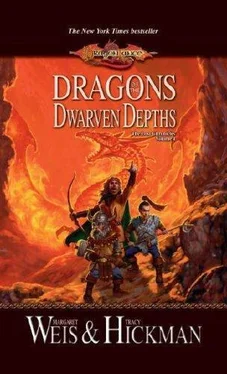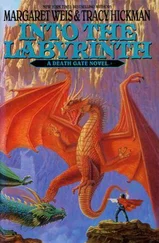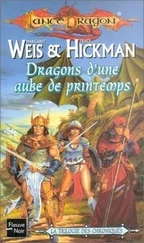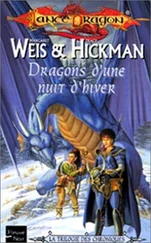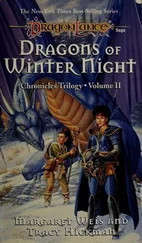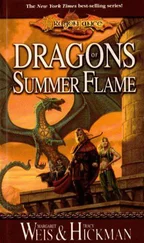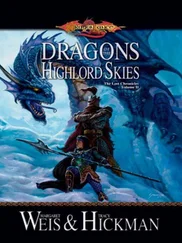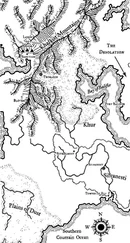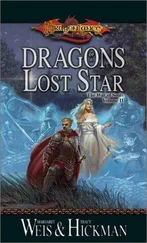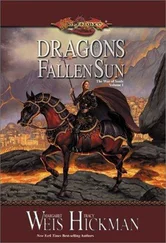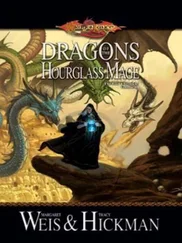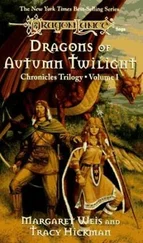Margaret Weis - Dragons of The Dwarven Depths
Здесь есть возможность читать онлайн «Margaret Weis - Dragons of The Dwarven Depths» весь текст электронной книги совершенно бесплатно (целиком полную версию без сокращений). В некоторых случаях можно слушать аудио, скачать через торрент в формате fb2 и присутствует краткое содержание. ISBN: , Жанр: Фэнтези, на английском языке. Описание произведения, (предисловие) а так же отзывы посетителей доступны на портале библиотеки ЛибКат.
- Название:Dragons of The Dwarven Depths
- Автор:
- Жанр:
- Год:неизвестен
- ISBN:0-7869-4099-9
- Рейтинг книги:5 / 5. Голосов: 1
-
Избранное:Добавить в избранное
- Отзывы:
-
Ваша оценка:
- 100
- 1
- 2
- 3
- 4
- 5
Dragons of The Dwarven Depths: краткое содержание, описание и аннотация
Предлагаем к чтению аннотацию, описание, краткое содержание или предисловие (зависит от того, что написал сам автор книги «Dragons of The Dwarven Depths»). Если вы не нашли необходимую информацию о книге — напишите в комментариях, мы постараемся отыскать её.
Dragons of The Dwarven Depths — читать онлайн бесплатно полную книгу (весь текст) целиком
Ниже представлен текст книги, разбитый по страницам. Система сохранения места последней прочитанной страницы, позволяет с удобством читать онлайн бесплатно книгу «Dragons of The Dwarven Depths», без необходимости каждый раз заново искать на чём Вы остановились. Поставьте закладку, и сможете в любой момент перейти на страницу, на которой закончили чтение.
Интервал:
Закладка:
The dwarves held the temple in reverence and awe, going there to offer humble prayers to Reorx, to ask for his blessing and praise him. But as time passed and the might of Thorbardin grew, the dwarves thought better of themselves. Who were they, powerful and mighty, to beg to a god?
They came to demand, rather than ask, often writing down their demands on stones and tossing these into the pit. Some dwarven priests found this practice reprehensible and preached against it. The dwarves refused to listen, and thus Reorx was pelted with demands that he give his people everything from wealth to eternal youth to an unfailing supply of dwarf spirits. Apparently Reorx grew weary of this, for when the Cataclysm struck, the ceiling of the temple caved in, blocking all the entrances. The dwarves attempted to remove the rubble, but every time they shifted a boulder or a beam, another crashed down, and eventually they gave up. It was Duncan, High King, who reopened the temple. He hoped to find Reorx by doing so, and he devised a plan to use the great Ukhar worms to chew through the rubble. His detractors said the worms would not stop there but would chew through the temple walls as well, and the worms did in some places before the worm wranglers could stop them. These holes were easily repaired, however, and dwarves could once more enter the temple.
King Duncan did not find Reorx there, as he had hoped. Legend has it that the king flattened himself on his belly and peered into the pit, hoping to see the famed stars. He saw nothing but darkness. Still, he held that the temple was a sacred place and the memory of the god was here, even if the god himself was gone. He banned the tossing of stones into the pit. Once again, important ceremonies and functions were held in the Temple of the Stars and thus it was deemed to be the most suitable place for the Thanes to witness the recovery of the Hammer of Kharas. Hornfel prayed it might happen soon, for already the mountain kingdom was in turmoil. Word of the monstrous winged lizard-man had spread rapidly throughout all the realms, creating a sensation. A laconic race, dwarves are not given to rumor-mongering. They do not embellish stories or exaggerate the facts, leaving that to humans. A dwarf caught dressing up a tale is not to be trusted. One lone draconian leaping off the lift in a human community would have turned into six hundred fire-breathing dragons invading the kingdom. The dwarves who had seen the draconian jump off the Life Tree and fly over the lake told the astonishing tale to their neighbors and relatives, and they told it accurately None of the dwarves knew what to make of this creature, except that it was undoubtedly evil, and each dwarf had his or her own idea on what it was and how it came to be in Thorbardin. All agreed on one thing—no monster like this had been seen in Thorbardin as long as the gate was sealed. This was what came of opening their doors to the world beyond. Tanis and the other “Talls” were viewed with even more suspicion than before.
Hundreds of dwarves were already clogging the Ninth Road in an effort to reach the Temple. There had already been several fistfights, and Hornfel feared that worse would happen. Riots would break out and dwarves would be hurt if they were allowed to crowd into the temple and its environs. Hornfel decided to close the Temple to the public. Only the Thanes and their guards would be present to witness the Hammer’s return.
Having seen the draconian for himself, Hornfel came to believe that Tanis had been telling the truth—the Theiwar had betrayed Thorbardin to the forces of the Dark Queen. Hornfel feared that Realgar, knowing his perfidy had been discovered, would choose this time to attack. The Theiwar army, being little more than an armed mob, did not overly concern Hornfel, whose troops were highly trained and well disciplined. But the half-elf had warned Hornfel that an army of these dragon-men might well be prepared to invade. If that happened, they would likely attack the Temple first, in an effort to seize the Hammer. Hornfel wanted armed troops surrounding the temple, not an unruly crowd.
Hornfel was also worried about the Daergar. If Rance sided with Realgar, and they were backed up by the forces of darkness, Hornfel despaired that even the Hammer of Kharas could save his people.
The Thane of the Hylar was a dwarf of courage and nobility, whose worth was proven in these dark hours. Hornfel readily admitted that he had been taken in by Realgar’s lies. He had misjudged Tanis and the others.
“I have lived too long sealed up inside the mountain,” Hornfel said sadly. “I need to see the sunshine once again, breathe fresh air.”
“What you need,” Sturm advised, “is to look for Reorx. You won’t find him at the bottom of a pit.”
Hornfel thought this over. Like most dwarves, he had sworn many an oath by Reorx. The Thane had never before prayed to Reorx, however, and he wasn’t certain what to say. He had been told of the words of the strange dwarf who had appeared in the entrance to the Valley, how the fate of Thorbardin hung by a slender rope. In the end, Hornfel’s prayer was simple and heartfelt, “Reorx, grant me the wisdom and the strength to do what is right.”
He held his troops in readiness, as did the Thane of the Daewar, Gneiss, whose thinking had agreed with Hornfel on all points except Reorx’s return. If the god had come back, he would have made himself known to the Daewar first, since they had been the ones to build and tend his shrines. As of yet, Gneiss had seen no sign of him.
Tufa, the Thane of the Klar, had seen the draconian and been eager to kill it. He envisioned these monsters creeping into Thorbardin along dark and secret paths, and he sent his people, who knew their way around the darkness and the labyrinthine tunnels, to investigate.
The Thanes assembled in the Temple of the Stars, each bringing with him heavily armed guards. Hornfel had also invited the Talls to join them in the Temple. A large square building, the Temple had four entrances, one at each of the four compass points. Wide halls ran straight from the four doors to intersect in the inner chamber. This was the altar room and it was circular in shape, for it had been built around the pit—a round pool of starlit darkness beneath a domed ceiling. A hole in the ceiling was placed directly above the pit, matching it in shape and size and symbolizing the idea that the realm of the god had no beginning and no end.
The altar of Reorx, which had been considered ancient in King Duncan’s time, had never been removed. Made of red granite carved in the shape of an anvil, the altar stood at the end of the platform that extended out into the pit. The dwarven Thanes eyed the altar uncomfortably, wondering if they should make some offering to acknowledge the god’s return. None knew what they were supposed to do or say, so rather than risk offending the god, who was known to be touchy, they stood before it, doffed their helms, and then looked uncomfortable. The rest of the large altar room was empty. There were no thrones, chairs, or benches. Those was entered the altar room were in the presence of the god and were meant to stand in respect. Hornfel, Gneiss, Tufa and Klar were the four Thanes in attendance. They came together, talking in low and worried voices. Tanis and his friends stood apart, saying little. The dwarves had placed torches in sconces around the walls, but the flames did little to light the vast room. Darkness seemed to flow out of the pit and drown them, for though the air was still and calm, the torches constantly flickered and went out. Even the light cast by the staff of Magius seemed dimmer than usual, shedding its light only on Raistlin, illuminating nothing else.
“Two of the Thanes are missing,” said Sturm, “those of the Theiwar and the Daergar.”
Читать дальшеИнтервал:
Закладка:
Похожие книги на «Dragons of The Dwarven Depths»
Представляем Вашему вниманию похожие книги на «Dragons of The Dwarven Depths» списком для выбора. Мы отобрали схожую по названию и смыслу литературу в надежде предоставить читателям больше вариантов отыскать новые, интересные, ещё непрочитанные произведения.
Обсуждение, отзывы о книге «Dragons of The Dwarven Depths» и просто собственные мнения читателей. Оставьте ваши комментарии, напишите, что Вы думаете о произведении, его смысле или главных героях. Укажите что конкретно понравилось, а что нет, и почему Вы так считаете.
